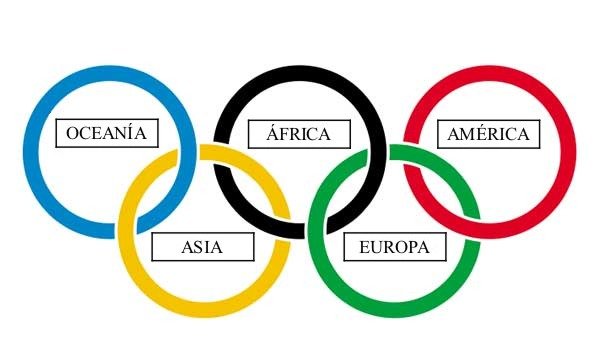Olympic games part 3
- Paris 1900
Those held in Paris over five months Olympics, between May and October 1900, were the first in which there was women's participation, but also had so little Olympic trials as sack races, the jump frog or rupture of the pot.
Reggie Doherty refused to play the semifinals of the tennis tournament against his younger brother, Laurie, for this disputed and won the final.
Spanish first success in the Games, Santiago Pidal, Marquis of Villaviciosa, took second place in the unofficial test archery.
The lack of material to reward the winners resources was reflected in the absence of medals and some winners were rewarded with pipes, sticks or portfolios.
- San Luis 1904
The 1904 Games were held in St. Louis (USA) and were accompanied by a parallel conference known as "Anthropological Days" those who were invited, voluntarily or involuntarily, people of ethnic groups considered "exotic".
There came American Kaffirs, Sioux Indians, Patagonians, Syrians or pygmies, who were displayed as if participating in a sideshow it were, with the sole intention of entertaining the "white" with the mock contemplation of their activities.
Fred Lorz came first in the marathon with a surprising time. It was discovered that had been part of the journey by car. He was disqualified.
George Eyser, American gymnast, won a gold, two silvers and a bronze. His left leg was made of wood.
They were held in these Games, the "anthropological days" to compete blacks, Syrians and Indians. Coubertin expressed his disgust at this shameful case of racism.
- London 1908
Rome was allocated for the celebration of this year, but the economic problems affecting Italy and Vesuvius eruption led to the resignation a year earlier. London took the start of the event.
Walking distance athletes currently participating in the marathon is 42,195 meters and was set at the 1908 Olympics in London, not in 1896, in Athens, as sometimes has spread.
Although the official race distance approaches existing between the city of Marathon and the capital of Greece, the figure marked after being the athletes who traveled from Windsor Castle to the Olympic stadium in the capital of England. Since then, there has not been any changes.
For the first time women were admitted in exhibition sports.
- Stockholm 1912
The Olympic Games in Stockholm (1912) first gave benefits, with a favorable balance of 106,000 crowns.
While the organizers could capitalize on the Olympics, the athletes were no concessions. Jim Thorpe, an American of Indian origin who came from the tribe of the Sioux, rolled in decathlon and pentathlon tests. However, upon returning to his country, it was reported he had taken seventy dollars a month as a baseball player and was disqualified for professional. In 1983, his sons received from the president of the IOC, Juan Antonio Samaranch, the medals that had been removed 71 years earlier.
This edition was a remarkable leap into modernity. Was introduced was the electric timing and photo on all arrivals of athletic careers.
Duke Kahanamoku introduced a new way to swim the front crawl, with whom he won gold in the 100 freestyle.
In the semifinals of the middleweight Greco-Roman wrestling, Martin Klein and Alfred Asikainene fought for eleven hours. Klein won, but was so exhausted he could not be presented to the final.
the Spanish Olympic Committee (COE) was founded with a total of 500 members.
- Antwerp 1920
The Belgian city hosted the Games in 1920 after the parenthesis of World War II. At that event, the flag was opened with the five Olympic rings, which convertió on one of the icons of the twentieth century and whose meaning remains in the XXI.
Although started to use a sign which is identified with such a unifying and constructive as the Olympic spirit, Belgium did not accept the participation of some countries that had carried out recently concluded as happened with Germany the war, the Soviet Union, Austria, Hungary, Bulgaria and Poland.
The athlete Paavo Nurmi, the "Flying Finn" won nine gold medals.
Sweden's Oscar Swahn is the oldest Olympic winner in history. He won gold in the shooting competition with 73 years. 